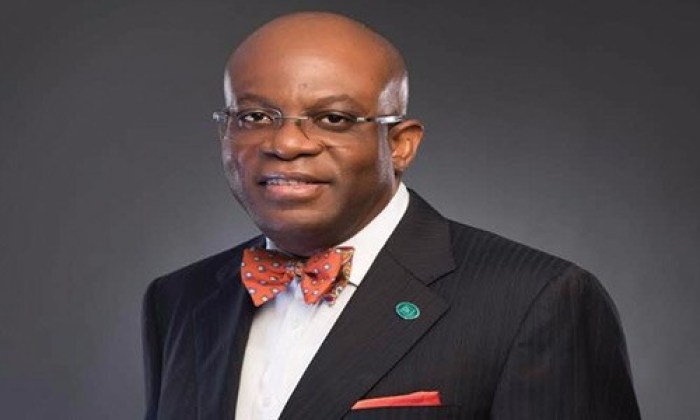The proposed arraignment of President of the Nigerian Bar Association (NBA), Paul Usoro SAN, over alleged N1.4 billion fraud, was on Monday, stalled due to non-service of the criminal charge on the accused.
The 10-count-charge, pending before Justice Muslim Hassan, is preferred against Usoro by the Economic and Financial Crimes Commission (EFCC).
Also named in the charge, is the incumbent governor of Akwa Ibom, Emmanuel Udom, who is described in the charge as being “currently constitutionally immune from prosecution’’.
Others charged are the Akwa Ibom State Commissioner for Finance, Nsikan Nkan; Accountant-General of Akwa Ibom State, Mfon Udomah; the state Attorney-General, Uwemedimo Nwoko and Margaret Ukpe.
The aforementioned accused are said to be at large.
When the case was called on Monday, Mr Rotimi Oyedepo appeared for the EFCC, while Chief Wole Olanipekun (SAN) appeared with 13 other senior advocates for Usoro.
Oyedepo then informed the court that the anti-graft agency had repeatedly put a call across to the accused, seeking his presence at the commission’s office, so as to effect personal service of the charge on him.
He said the accused had implored the commission on the grounds that he had a function to attend, and had promised to visit the EFCC on Dec. 7. (last Friday)
Oyedepo said Usoro did not make good his promise, adding that since it is fundamental for the summons to be served personally on the accused, the court should grant a short adjournment, to enable the prosecution to serve the charge on Usoro so that proceedings could commence.
Citing the provisions of sections 122, 123 and 271 of the Administration of Criminal Justice Act (ACJA), the counsel argued that it was the duty of the prosecution to bring an accused before the court, “unfettered”, for purposes of arraignment.
He stressed that by the provisions of sections 122 and 123 of the Act, personal service of the charge can be effected on the accused by either a police officer, an officer of the court, a public officer or even a courier service, allowed by law.
After Oyedepo made this submission, a large number of lawyers in the courtroom shouted “he is here in court all ready, serve him personally’’.
The consequent noisy courtroom was thereafter brought under control.
Oyedepo then sought for an adjournment to enable the prosecution do the needful.
In response to prosecution’s submission, Olanipekun argued that he had perused the provisions of the ACJA, and found no section insisting on the physical presence of a defendant at the commission’ office to pick up his charge.
“It is the duty of the prosecution to serve the defendant with the charge and not to say come and pick up your charge,’’ Olanipekun said.
Defence counsel also corrected the assertion by the prosecution that the accused did not honour his invitation to the EFCC.
He said: “My lord will take notice that the defendant is the President of the NBA, meaning that he is as busy as an ant, with engagements here and there.
“And with all respect, he has been going to the EFCC office since June, up till last week Tuesday.’’
He told the court that the accused received a call on Monday morning from the EFCC office, asking him to come down and pick his charge and the accused had responded that he was already in court and ready to be served with the charge in court.
“The charge is already in the court’s file, so if my lord can direct that the charge is served on him in court, then we take a date for arraignment,’’ he said.
After listening to the submissions of counsel, JusticeHassan held: “It is trite that service of a charge is fundamental to trial and it is not in dispute that the defendant has not been served.’’
The court noted that by the provisions of the ACJA, service of a charge can be affected by the police, court official or by courier.
The court consequently, directed the constituted officers to serve the accused with the charge as provided by law.
Justice Hassan adjourned the case until Dec. 18 for arraignment.
In the charge, marked FHC/418c/18, the anti-graft agency alleged that the accused committed the offence on May 14, 2016.
EFCC alleged that Usoro, conspired with others, to commit the offence within the jurisdiction of the court.
The anti-graft agency claimed that the N1.4 billion belonged to the Akwa Ibom State Government.
They were alleged to have conspired to convert the amount, property of Akwa Ibom State Government, which sum they reasonably ought to have known, formed part of the proceeds of an unlawful activity.
The prosecution said that the unlawful activity includes criminal breach of trust which contravenes the provisions of section 15 (2), 15(3), and 18 (A) of the Money Laundering (Prohibition) Act, 2011. (NAN)




 Premier League
Premier League